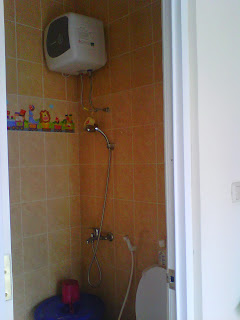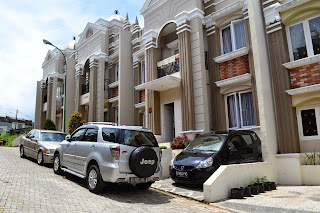Amid fierce competition smartphone market, we often encounter negative campaign conducted the competitors.
Fear (fear), uncertainty (uncertainty), and doubt (doubt), or often abbreviated as FUD, which is considered to be a powerful marketing tactic.
Fortunately competitive platforms are often supported by loyal users who want to spend for the sake of the hero. In addition, most of them are also willing to write reviews on the Internet as a form of resistance to the rumors.
Many erroneous myths associated with Android, and the myth continues to grow. Here are five of them, as quoted KompasTekno of Android Authority:
1. Android is complicated
Many of them think that a smartphone with Android operating system was difficult to use. In fact, the icons and menus are displayed Android easier to learn.
Most new Android users coming from feature phones (phones with basic skills). Iconic feature phone has a rigid and layered menu option. Unlike the Android operating system is made so that its interface can be explored with a simple and easy to learn.
In any latest version, the interface is always enhanced. There is no difference in usage compared to other platforms.
IDC data recently released shows Android's market share reached 80 percent. It shows how many people who can quickly adopt Android.
2. Requires Android Task Killer app
Many argue that the application requires Android Task Killer is useful for applications that have been used to close and that is not running in the "background".
In the early release of the Android smartphone, many Task killer application that the user downloads. Other similar applications are also much in demand. Is it true that the task killer can save Android battery life?
Some say Task killer argument could save battery life, but also many who argue otherwise. Like the discussion that occurred at the site Lifehacker, some say stability and better battery when the task Killer to uninstall.
To see for yourself, just try to delete the task killer application on your Android device, then compare the performance and durability of the battery.
3. Android malware lot
Android malware is widely circulated. However, for most users, Android is very safe. To protect any Android user can do it easily.
Each application in Android will ask for permission to access the user and the user can decide for yourself whether you want to install the application or not.
If it still feels cumbersome, there is still an alternative to installing an independent security applications. Do not install apps outside of Google Play Store as most malware comes from a third party source.
To identify malware, do not rush to update an application, first read reviews and see the amount of downloads. Do the same when you are browsing on a PC, such as not clicking on links or attachments suspicious e-mails.
Lastly, do not "root" your Android. Android is the weakest part of the users. If users bypass security layer that is made in Android, the smartphone user endangering his own.
4. All the same Android smartphone
Many Android users who tell all, brand and any model, it lousy smartphone. When traced, they turned out to be using the Android smartphones with lower specifications and are usually sold cheap.
Google has improved the Android user experience and optimize its services so that users do not need advanced hardware platform to enjoy this.
Unfortunately, sometimes the smartphone vendors such as installing additional applications made their own interface and Android users install bloatware, the Google work to be in vain.
The positive side with no limits in Android is, the user can choose a variety of devices and varying prices. However, the downside is that there is a product defect.
Read the reviews on a lot so that you can choose a suitable Android smartphone and not have to grope pocket deep.
5. Android is more often problematic than competitor products
At the beginning of Android smartphones emerged, many said the platform was slow. Android's apps are also arguably more frequent crashes than any other platform.
What actually happened was, not as in step hardware with software updates. Application developers sometimes it takes time to optimize the application every time a hardware update.
Several studies have shown different results. As with the data from Forbes magazine published Crittercism saying iOS apps crash more often than Android apps. But a year later, it turns iOS 6 application that runs better than with Jelly Bean.
Every smartphone user must have experienced crashes. More complaints from Android users likely to come from low smartpphone with underpowered hardware, which has a customizable interface, and the bloatware installed.
Android smartphone or tablet that is good is not often experience lag or crashes than any other platform devices. Keep in mind also that "good" does not necessarily have the best specs.












































